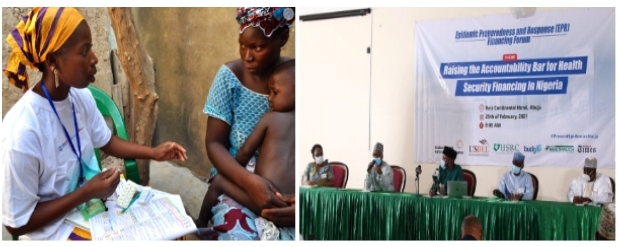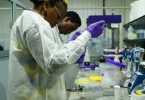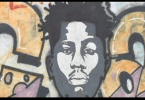Global Health Initiatives (GHIs) are concerted worldwide efforts involving individuals, organizations, and corporate stakeholders to tackle urgent health challenges across the globe. Nigeria’s contribution to global health initiatives is a necessity, since it is a beneficiary of a number of them. We must note that the effectiveness of these GHIs are largely based on three factors namely:
- the degree of coordination;
- cooperative efforts; and
- the amount of continuous, adequate funding available for the health issue(s) for which each of them is set up.
These global health initiatives are a medium to:
‘… raise and disburse additional funds for infectious diseases – such as AIDS, tuberculosis, and malaria – for immunizations and for strengthening health systems in developing countries.’
Some of the well-known global health initiatives include:
- The Joint United Nations Programme on HIV/AIDS (UNAIDS)
- Global Polio Eradication Initiative (GPEI)
- International Planned Parenthood Federation (IPPF)
- Global Fund to Fight AIDS, Tuberculosis and Malaria
- GAVI: The Vaccine Alliance
- Bloomberg Philanthropies Data for Health
- (US) President’s Emergency Plan for AIDS Relief (PEPFAR)
- US President’s Malaria Initiative
The Need for Global Health Initiatives: Nigeria’s Health Indicators
With an estimated population of over 223 million as of 2024, Nigeria’s population will likely hit about 440 million by 2050 (if not more). And not surprisingly, Nigeria has some of the worst health indicators in Africa as well. Some of them are itemized below:
- Nigeria has the second largest number of people living with HIV worldwide (at 9 percent).
- Nigeria’s maternal mortality rate is currently over 800 per 100,000 live births
- Malaria is ranked the fourth biggest cause of deaths in Nigeria, with under-5 child mortality rate of about 103.2 deaths per 1000 live births.
In addition, Nigeria has critical ongoing challenges with environmental pollution, poor nutrition, and inadequate potable water, amongst others. It places a big burden on the country to beef up its equally underfunded healthcare infrastructure.
There is also an acute ‘brain drain’ problem, which informs a higher need for Nigeria’s contribution to global health initiatives. Many Nigerian health professionals have gone to other countries to seek improved working conditions. Simply because they have been underpaid back home for decades.
Thus, improving healthcare and reducing the burden of diseases in Nigeria is not an option. Such contributions will go far in making the GHIs achieve their goals of improving healthcare globally. Which calls for necessary programs to be put in place to boost Nigeria’s contribution to global health initiatives. This will critically mitigate poverty, and improve the well-being of Nigerian citizens in the nearest future.
Highlights of Some of Nigeria’s Contribution to Global Health Initiatives so Far
Africa Center for Disease Control (CDC)
The Africa CDC was set up by the African Union in FCT Abuja. One of its main goals is to enhance the local manufacturing of vaccines. The center also has a target of hitting 60 percent of supplies across the continent by 2040. To this end, the Nigerian government (under the Tinubu administration) established the National Institute for Pharmaceutical Research and Development (NIPRD). The NIPRD has actively promoted the manufacture of COVID-19 vaccines.
Furthermore, the government has entered into partnerships with world bodies like Coalition for Epidemic Preparedness Innovations (CEPI) and World Health Organization (WHO). It has also established public-private partnerships with pharmaceutical industries, research institutions, and international organizations. Such partnerships were meant to promote research efforts and knowledge exchange, as well as invest resources, to enhance the manufacture of vaccines.
Deployment of Resources in Vertical Global Health Initiatives to Support Other Emerging Health Issues
Most global health initiatives are designed to focus on just one disease. Where they target more than one disease, they are operated as parallel systems with minimal interference with one another. As such, an HIV program is run separately from a Polio program. However, there are a few cases where resources dedicated to a vertical health initiative may be used to support another (if only temporarily).
Such a case occured during the Ebola virus outbreak of 2014–2016 in West Africa. The resources and experiences gathered from Nigeria’s polio program were used to prepare a useful Ebola response program. But thereafter, there was no other crossover deployment of resources from the polio program.
In another instance, the Nigeria CDC approached the different vertical disease programs to negotiate for resources to support the COVID-19 response in 2020. GeneXpert responded by providing their tuberculosis testing systems to support the SARS-CoV-2 testing. The GeneXpert tests produced results within a 2-hour turnaround time. This was in contrast to reverse transcription PCR testing results which were obtained in 6 hours.
Further support came from the HIV testing facility within Nigeria CDC’s National Reference Laboratory (supported by the US Centers for Disease Control and Prevention). They provided high throughput testing for SARS-CoV-2 during the period. further contributing to enhanced testing capacity in Nigeria. Yet again, several staff from field epidemiology training programs were deployed across Nigeria and several other countries to support the COVID-19 workers during the pandemic.
Nigeria’s Contributions to the Global Fund
As of February 2024, Nigeria has contributed at least 38.79 million US Dollars to the Global Fund. The country made an additional pledge of 13.2 million US Dollars towards the Seventh Replenishment of the Global Fund (which covers 2023 to 2025). This is a demonstration of Nigeria’s dedication to reducing the burden of three major diseases, along with building and strengthening our health systems.
Nigeria’s Contribution to Women in Global Health (WGH) Nigeria
In October 2020, the Women in Global Health (WGH) Nigeria hosted a campaign tagged #9jawomenat60 from the 28th of September to the 5th of October 2020. Titled ‘Gender Inequality: The Real Pandemic’, the campaign drew attention to Nigerian women’s role and inequality challenges in the nation’s healthcare system. WGH Nigeria also contributed to the WGH/FIND COVID-19 50-50 country chapter level report. The report outlined the effects of COVID-19 worldwide; specifically targeting how women health workers, domestic and social caregivers were disproportionately affected. The campaign was supported by Helium Health, macArthur Foundation, and PharmAccess Foundation.








